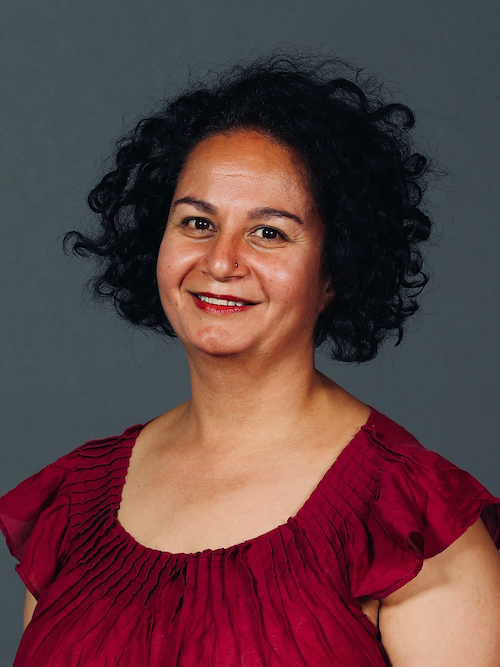How do you prove what religion you were raised to someone you just met?
A Christian can wear a cross, although anyone could do this relatively easily.
A Muslim woman can wear a Hijab, but not all do.
A Jewish woman can shave her head and wear a long skirt, although only the orthodox do.
Muslim and Jewish men can show that they have been circumcised.
A Buddhist can abandon their possessions and wear the orange coloured robes of a monk, but not all do.
If you are Hindu, how do you prove that? Probably more importantly why should you have to prove your religious affiliation?
I have been pondering these questions for a while now, because I have encountered some Hindu temples in India (and also previously in Nepal) where you are forbidden to enter unless you are Hindu. Most recently I went to two such temples on the same day in North Kerala: Guruvayur Temple which is dedicated to Lord Krishna, and the Vadakkunathan Kshetram Temple in Thrissur.
I was raised Hindu, so I should be allowed to enter these temples without issue. Whilst I am not a religious person, I would never disrespect a religion even if I don’t agree with it as I have previously discussed here.
The Guruvayur Temple is a famous Krishna temple and has a clear dress code, where women must wear a saree. It also clearly states that non-Hindus cannot enter. So to ensure I respected the rules of the temple I bought a saree and put it on for my trip to the temple. I also carried with me my passport and OCI identification in preparation for being asked to “prove” I was Hindu. It all felt kind of ironic to me considering on that same day my mother (who worships Lord Krishna) was starting a religious pilgrimage to Mathura (Lord Krishna’s birthplace).
The reason I took all the documentation with me was because of an experience I had in Varanasi. I visited the Vishwanath Temple there a couple of months ago and was put through a 25 minute inquisition to “prove” my “hinduness”. This included pulling out my passport and showing my rather Hindu name (Rakhee) which comes from a Hindu festival called Raksha Bhandan. I then had to name my parents, my grandparents and prove I knew how to speak some Hindi and Gujarati. It was downright humiliating. Just because I was born in another country, have an Australian accent and dress like a westerner doesn’t mean I am not Hindu. It means I have lived outside of India.
Clearly there is no distinctive feature that distinguishes a Hindu from a non-Hindu, so in this world of global migration and choice, how is one supposed to “prove” that they are Hindu?
I am happy to say I didn’t have to do any of this in Guruvayur. Being in a saree, I blended into the crowd and entered the temple without issue. Unfortunately others have not been so lucky. Another person entered the temple for a ceremony a few years ago but his entry was later objected to by the priests because his mother and wife are Christian, even though he himself is Hindu. The priests claimed he had “defiled” the temple and they had to “cleanse” it following his visit. So a Hindu is considered “unclean” but you can walk all over someone’s grave in the same country and it is considered entirely acceptable (such as the (Muslim) Taj Mahal).
At the Vadakkunathan Kshetram Temple I was questioned about whether I was Hindu, but after showing proof of my name I was allowed entry.
Both temples are beautiful, they have stunning carvings and paintings and demonstrate well how Hindus worship. I find it sad that others who are not Hindu by birth, but who have an interest in the religion do not have the opportunity to see them. It feels odd to me that a religion would want to close itself off unless it had something to hide from the world. In my opinion the best opportunity to educate people on your beliefs and let them learn about them is to let them experience them.
Considering other religions, I cannot recall every being refused entry to a place of worship of another religion. I have watched Sunday mass at St Peter’s Basilica in Vatican City. I have left a prayer at the Wailing Wall in Jerusalem. I have prayed at the Kalachakra temple in Mcleod Ganj. I have reflected at the Blue Mosque in Istanbul. Everywhere I have been welcome, even though I do not “belong” to these faiths.
So why is it that Hindu’s choose to shut out others from experiencing the beauty of their beliefs?
I did some research and was not able to find a logical explanation of this. I would appreciate it if anyone wanted to explain the rationale by commenting here so that I can also learn.
In my research I did come across this article, which talks about a temple in Uthapuram where Dalits (previously known as the Untouchable caste) have now been “allowed” into their temple after a two decade ban. They are Hindus, so if Hindus don’t allow Hindus into their own temple, then I suppose it may be asking too much for them to consider opening up their religion to others so that they can learn and appreciate what Hinduism is.
I don’t profess to be a practising Hindu, but I do respect religion and I learn a lot from all the religions in the world that I come across in my travels, and have found them always welcoming. It makes me sad that Hinduism doesn’t show the same respect and opportunity to others.

Leave a Reply